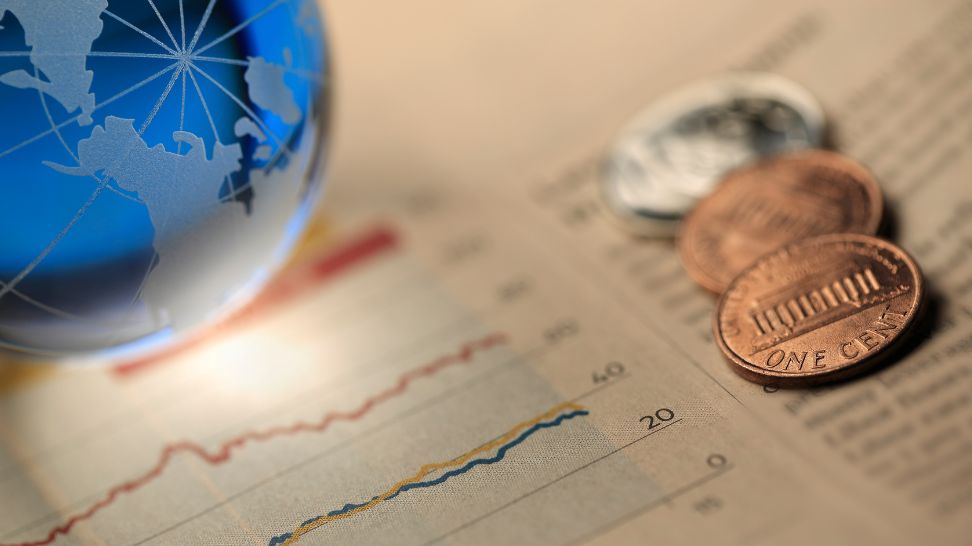You’ve built up a nice portfolio of assets over the years, and now you’re wondering, “Are offshore banks safer than domestic banks?”
In general, you can expect offshore banks in certain jurisdictions to offer more safety and security compared to domestic U.S. banks, especially regarding asset protection. However, some offshore jurisdictions offer more protection than others. Switzerland, for example, offers incredibly robust privacy laws, as do countries such as Liechtenstein, Panama, the Cook Islands, and the Cayman Islands.
Learn about the perks of offshore banking and how offshore bank accounts compare to the domestic variety in this article.
What makes Swiss banks stand out in terms of safety?
Swiss offshore banking offers some of the finest protections in the world. Let’s explore why Swiss banks are a smart choice for many investors.
Reputation for Stability and Discretion
Compared to some other nations, Switzerland boasts a very stable economy. The Swiss franc is backed by large amounts of gold and other assets, granting Switzerland a “safe haven” status. These reserves ensure stability even when the global economy isn’t doing well.
Additionally, Swiss banks are very discreet. If you don’t want other people or creditors to know you have a Swiss bank account, Switzerland is the jurisdiction of choice.
Role of Swiss Banking Secrecy Laws
Switzerland takes banking secrecy so seriously that it has three laws on the topic:
- Swiss Banking Act of 1934
- Data Protection Act
- Civil Law, Article 28
Think of Swiss banking secrecy like attorney-client privilege. Attorneys can run into trouble if they share details about their clients. So, too, can Swiss banks if they share their members’ financial details. Bank employees can go to jail for up to five years if they share customer information with third parties.
Recent Developments and Challenges Facing Swiss Banks
Despite Switzerland’s reputation as a tax haven, the country no longer offers the impenetrable protections it once did. In 2017, Switzerland signed the Automatic Exchange of Information (AEOI) and Common Reporting Standards (CRS) treaties.
Under these treaties, Switzerland must automatically send bank client information to partnering tax agencies in more than 100 countries. This prevents banking customers from dodging taxes in their home country.
How secure are Liechtenstein banks compared to domestic banks?
Neighboring Liechtenstein is another jurisdiction to consider, although it may not be wise if you value secrecy.
Overview of Liechtenstein’s Banking Sector
Banks in Liechtenstein operate similarly to those in Switzerland, so it’s unsurprising that they share similar secrecy laws. Banks in this country will give your financial details to tax agencies, so don’t expect to evade taxes if you have an account here.
Regulatory Environment and Supervisory Practices
Liechtenstein still values banking secrecy, but like Switzerland, it’s not the tax haven it once was. The small nation recently came under fire as one of the last remaining uncooperative tax havens in the world.
Germany launched an extensive tax probe in 2008 to find information about its tax-evading citizens. Since then, Liechtenstein has become gun-shy about opening accounts for foreign investors. Many of its 20 banks will not let you open an account unless you’re a Liechtenstein resident.
Comparisons With Other Offshore Jurisdictions
Compared to other jurisdictions, Liechtenstein is not a safe banking haven. Additionally, opening an account there can be nearly impossible for foreigners.
Understanding the Risks Associated With Domestic Banks
Domestic banks have plenty of risks to worry about. Here are a few to watch out for.
Regulatory Framework in the United States
U.S. banking laws, interest rates, and liquidity levels are constantly in flux. Periods of inflation can also present a serious risk for domestic investors.
Recently, JPMorgan Chase CEO Jamie Dimon warned that excessive government spending could lead to higher interest rates and inflation soon. As a preview of what may come, the average rate for a 30-year mortgage has spiked to more than 8% for the first time in decades.
History of Banking Crises and Failures
U.S. bank failures have impacted the country ever since the signing of the Declaration of Independence in 1819. In 1837, for example, a recession caused more than 330 banks to collapse in response to falling cotton prices, a land price bubble, and shady lending practices in Western states.
Perhaps the most famous banking crisis is the Great Depression of 1929. In a widespread panic, many consumers made bank runs to pull money from their accounts. These runs caused more than 9,000 banks to fail throughout the 1930s.
From 2008 to 2015, the U.S. faced the Great Recession, a period of economic contraction that brought about the failure of more than 500 banks. This recession was largely due to an intensively speculative housing market. The United States government had to bail out quite a few banks, and it took years for the financial services sector to recover.
More recently, the COVID-19 pandemic has caused several large banks to collapse from 2020 to 2023. In March 2023, banking giant SVB failed, marking the second-largest bank failure in history.
Perception of Risk Among Investors and Depositors
Due to regular bank failures and a periodically tumultuous economy, the U.S. has developed a precarious reputation among investors. This is why investors have chosen to open bank accounts in offshore countries such as Switzerland, Curacao, and the Bahamas.
Are there any risks associated with offshore banking?
Are offshore banks safer than domestic banks? Offshore banking offers many protections, but it’s not without risks. Below, we explore some risks to watch out for.
Regulatory and Legal Risks
Banking and anti-money laundering regulations in offshore jurisdictions can change on a dime, potentially putting your assets at risk. When Switzerland signed the two reporting treaties in 2017, its actions left hundreds of foreign investors scrambling. The same could happen to you with little to no recourse.
Operational Risks
You’d be hard-pressed to find a bank that doesn’t offer online services or partner with third parties. Third parties present added risk, as savvy hackers can break into accounts and steal your hard-earned money. This risk is especially high in countries with poorly developed online infrastructures.
Currency and Exchange Rate Risks
Before opening a bank account in an offshore jurisdiction, you must understand its currency’s value compared to the U.S. dollar. Some countries offer a better return on your money than others. If you choose poorly, converting your cash into a country’s currency can cost you because of unfavorable exchange rates.
Financial Stability Risks
Some jurisdictions are poor choices for foreign investors because they’re unstable. Such countries include Libya, Uganda, Ethiopia, and Sudan. These nations have a history of conflict, and should a war break out, good luck retrieving your money from the bank.
Tax Compliance Risks
Just because you have an offshore bank account doesn’t mean you can avoid paying taxes. If you fail to submit the correct documentation to the IRS, you might have to pay late fees and hefty fines for non-compliance.
Is it legal to open offshore accounts for U.S. citizens?
Opening an offshore bank account is legal when not done for nefarious reasons. If you’re just trying to enjoy a better return on your money, there’s nothing wrong with that.
You might find yourself in legal hot water if you’re trying to hide money from creditors, though. If a court can prove you fraudulently transferred money into an offshore account to dodge a creditor, you’ll probably have to pay that money back, plus interest. You may even spend time in jail.
Are offshore banks more resilient than domestic banks during global financial crises?
Offshore banks can be more resilient than local banks during a financial crisis, which is one of the reasons they’re so beloved by U.S. investors.
Imagine what might happen if the U.S. dollar collapsed. You could go bankrupt if you stored all your money in a domestic bank account. But if you had the foresight to stash money in an offshore account, you could escape the crisis relatively unscathed.
Why consider offshore banks over domestic banks?
Offshore banks offer plenty of benefits over domestic banks. Perks include:
- They can protect your money from creditors (except in the case of fraudulent transfers). In many jurisdictions, banks can’t tell creditors you have an account open with them. Additionally, privacy-focused jurisdictions can force creditors to prove beyond a reasonable doubt that you transferred money fraudulently.
- You can take advantage of currency exchange rates. In some jurisdictions, the U.S. dollar might be worth far more than it is domestically.
- Swiss bank accounts safeguard your money from a tumultuous domestic economy. If you’re worried about a bank collapse, diversifying the location of your bank accounts is a wise choice.
- Opening an offshore bank account can give you investment opportunities in foreign countries, enabling you to add to your portfolio further.
Learn More About Opening an Offshore Bank Account
Are you still wondering, “Are offshore banks safer than domestic banks?” Need help choosing a jurisdiction for asset protection? Reach out to Blake Harris Law today for guidance.




